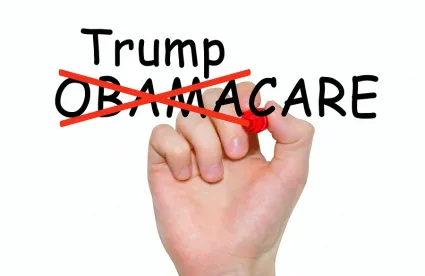Despite the Trump Administration’s unsuccessful attempts to fully repeal and replace the Affordable Care Act (the “ACA”), the Administration has continued to target the ACA. In the Administration’s latest salvo, the Centers for Medicare & Medicaid Services (“CMS”) announced in its Fiscal Year 2019 Performance Budget (the “Budget”)[1] – as released by the federal Office of Management and Budget on February 12, 2018 – a proposal to “wind down” its financial support for the federal health insurance exchanges. Specifically, the Budget explains that if Congress repeals the ACA, CMS will withdraw its support of the federal exchanges by plan year 2020.
In the Budget, CMS requests funds totaling approximately $2.4 billion to continue certain operations of the various programs it administers, including Medicare, Medicaid, the Children’s Health Insurance Program, and the federal health insurance exchanges, marking a decrease of approximately $403.6 million from last year’s request.[2] In connection with the proposed decrease, CMS plans the “wind down” of the federal exchanges for plan year 2020 as states transition to new Market-Based Health Care Grants. Ultimately, CMS hopes the Market-Based Health Care Grant Program will give states the ability to more effectively oversee their own insurance markets and expand enrollment options. However, CMS conditions its request by explaining that the Budget “assumes passage of legislation to repeal and replace Obamacare, which would phase down the Federal Exchanges as the new Market-Based Health Care grants become available in plan year 2020.”[3]
The ACA currently allows each state the opportunity to establish its own health insurance exchange to help its citizens and small employers purchase affordable health insurance coverage. While some states have taken full advantage of this opportunity, such as California and New York, other states, such as Texas and Florida, still heavily rely on the federal exchanges to promote health insurance coverage for their citizens.[4] Without the federal health insurance exchanges, the states that continue to rely solely on such exchanges may have a difficult time transitioning to CMS’s new Market-Based Health Care Grant Program.
In addition to the Budget, the White House budget blueprint, released earlier this year, discusses a two-part approach to repeal and replace the ACA, the first of which is the enactment of legislation modeled closely after the Graham-Cassidy-Heller-Johnson (“GCHJ”) bill as soon as possible, which will allow for the funding of CMS’s new Market-Based Health Care Grants to states.[5] The second part of the two-step approach includes the enactment of additional reforms to address healthcare spending and establish support for the new GCHJ-like bill.
While it is difficult to predict whether CMS will be able to implement its plan to “wind down” the federal health exchanges, given Congress’ lack of success in recent months to repeal and replace the ACA, history suggests that this Administration will nonetheless persist in its efforts to dismantle the law.
[1] Department of Health and Human Services, Centers for Medicare & Medicaid Services, Fiscal Year 2019 Performance Budget (https://www.cms.gov/About-CMS/Agency-Information/PerformanceBudget/ Downloads/FY2019-CJ-Final.pdf)
[2] Id.
[3] Id.
[4] The Marketplace in your state, HealthCare.gov (https://www.healthcare.gov/marketplace-in-your-state/)
[5] An American Budget, Fiscal Year 2019 Budget of the U.S. Government, U.S. Office of Management and Budget (https://www.whitehouse.gov/wp-content/uploads/2018/02/msar-fy2019.pdf)





 />i
/>i
